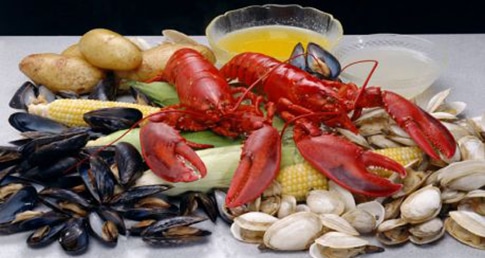
Shellfish nutrition facts for swimmers
November 19, 2014Most of us know that shellfish, as with most fish, is a great source of protein. However, as the body has to produce more heat to break it down it means you will burn calories simply consuming it! Here are a few more shellfish nutrition facts.
Following your swim, a great post-workout fat-burning meal would be a fresh fish portion with a fibrous carbohydrate source, such as salmon with broccoli and black pepper, or crab with rocket, tomatoes, cucumber and olive oil.
The fibrous carbohydrates provide the energy for the muscles to absorb the protein in the form of amino acids at the optimum rate. This is essential for muscle tissue repair, growth and improved immune system function.
Good fish
Most seafood/shellfish and other fish are healthy foods, high in protein and contain essential Omega 3 fatty acids which are vital for reducing body inflammation, increasing our body’s metabolism, muscle function, joint health and flexibility – and are also rich in Vitamin B12.
Regularly including fish in your diet (at least once per week) can help reduce your chances of having a heart attack or cancers.
High levels of zinc can help improve mood states and chromium helps us control our blood sugar levels and raise our levels of HDL (good) cholesterol.
Shellfish include:
- crab, lobster, mussels, clams, cockles, langoustine, oysters, prawns and king prawns.
- all oily fish – mackerel, cold water tuna and salmon, sardines, anchovies, herring and trout.
- other good fish and seafood – cod, swordfish, whitebait, monkfish, snapper, scallops, sea bass, octopus and squid.
Bad fish
Limit your intake of fish dishes such as deep fried cod or haddock in batter and other fast food fish choices e.g. deep fried fish fillets, fish fingers. Also avoid foods such as ‘crab flavoured sticks’ as they contain virtually no crab!
Always buy your tuna from a reputable source, so always check that it is eco-friendly and caught in colder waters (which increases the Omega 3 oil level).
Limit high consumption of sea fish that may contain high levels of mercury e.g. tuna fish. Also, be aware that some people will be allergic to shellfish!
 Masters Swimming Hub
Masters Swimming Hub



